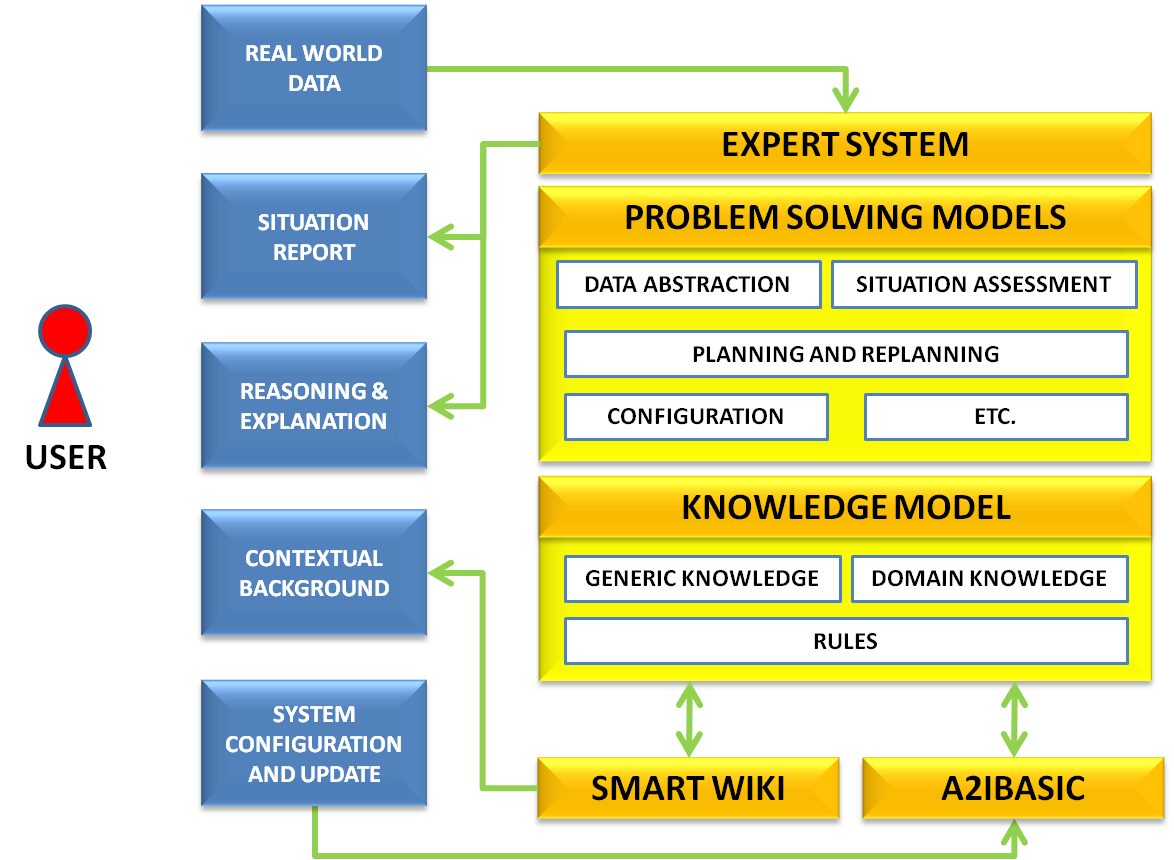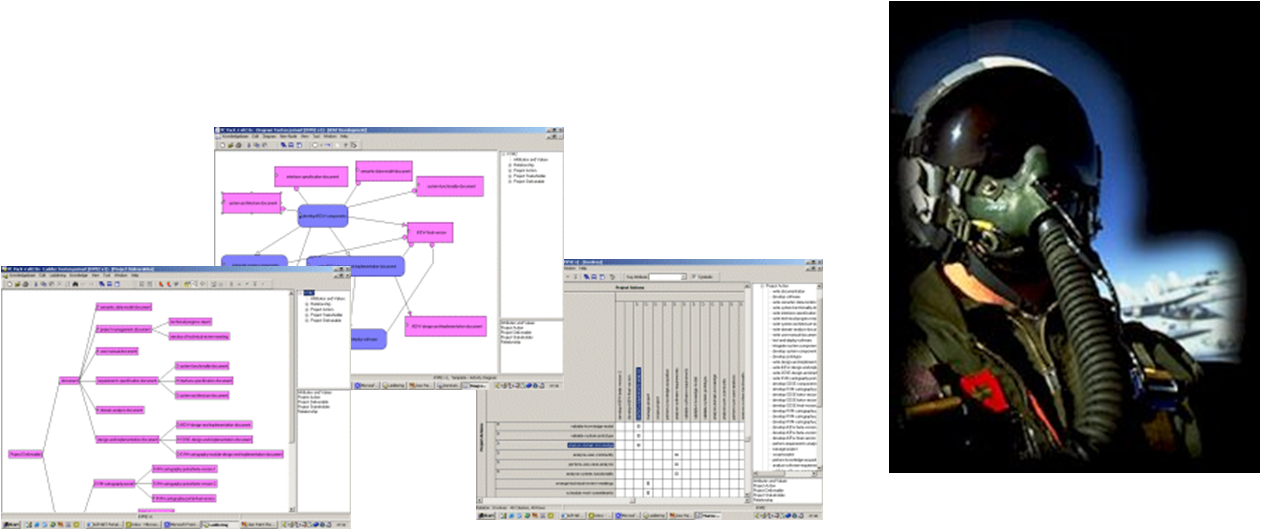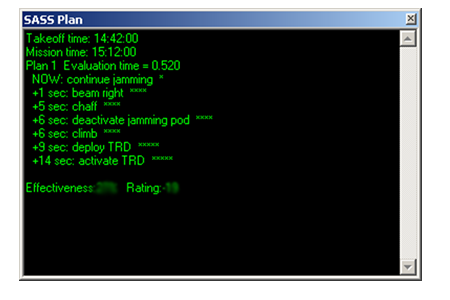Intelligent Decision Support
Supports complex process logic
Tacit Connexions can support complex process logic with Intelligent Decision Support (IDS) systems. These are built from pre-configured generic problem solving models that can be combined with specific domain knowledge to produce an expert system that reasons in the same way as a subject matter expert.
In this way best practice can be captured and distributed to everyday users enabling them to always have highly regarded and accepted expertise on hand.

Our IDS expert systems link with our Smart Wiki product to provide relevant background information to the user and be aware of the user's expertise and interests.
The expert system components can be configured and updated using our A2IBASIC product, typically to update the domain knowledge.
As with any expert system, decision support applications can explain their reasoning at every stage. New users may learn over time how the best experts make their decisions and thus become more proficient themselves.
Problem Solving Modules - Functionality
The AI & Semantic Workbench includes a sophisticated reasoning engine that's a quantum leap ahead of other out-of-the-box reasoning engine alternatives, and works in combination with a high-performance triple store. It can perform the same set of reasoning tasks and make inferences as would humans by selecting and combining the different types of reasoning required:
- Assessment
- Assignment
- Classification
- Configuration
- Diagnosis
- Modelling
- Monitoring
- Planning
- Prediction
- Scheduling

Case Study - Decision Support in Fast Jet Defensive Aids System (DAS)
WHAT WAS THE NEED?
This project was directed at improving fast jet pilot effectiveness in combat situations by reducing their cognitive workload. In outline, the aim was to provide intelligent decision support to progressively automate pilot tasks required to operate the DAS, the principle means of defending the aircraft against incoming threats and other anomalies.

WHAT INNOVATIVE APPROACH DID WE TAKE?
The solution was built around a number of expert system components interfacing with real-time on board avioinics and control and supervisory systems. The system generated 25 plans/second, responding in real-time to changes in incoming data and information streams.
The intelligent decision support system employed a generic knowledge model - applicable to other fast jets - derived from interviews with a number of experienced fast jet pilots and modelled using PCPACK, our knowledge engineering workbench. The model knew about the aircraft environment (height, speed, rate of turn rate of turn, performance limits, etc., it knew what was meant to happen, it identified threats and anomalies and used all this data and information to produce plans to ensure as successful pilot and aircraft mission against one or more threats. It also included geo-spatial rules as well as generic constraints and problem specific rules.
Formal structuring of the knowledge with PCPACK also made it easily editable, as learning from live missions could be applied to refine the model. The system's reasoning, in applying hard and soft constraints, was also made available to the pilot, both for verification and to allow pilot override if required.

WHAT WERE THE BENEFITS?
The project achieved all its required outcomes and was demonstrated extensively to high ranking military personnel and featured in a television documentary before being adopted by a DARPA Augmented Cognition program.
The technology provided the basis for intelligent decision support systems that solve the "what to do when X happens" class of problems. These not only increase operator confidence by confirming their own decisions, but also reduce operator stress levels in critical, possibly life-threatening, situations.


